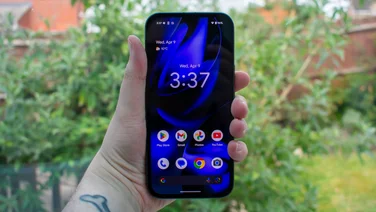To help us provide you with free impartial advice, we may earn a commission if you buy through links on our site. Learn more

Extensive software support is one of the reasons that the iPhone range retains its value, and why there’s a thriving second hand market for them. If you buy a refurbished iPhone, there’s a good chance it will still be running on the same software as one of Apple’s latest models.
This is all a well known fact about iPhones. What’s harder to pin down is precisely how long Apple supports its smartphones for.
It might surprise you to learn this but, unlike Google’s Pixel range or Samsung’s Galaxy S range, Apple doesn’t supply a hard and fast support promise with its iPhones.
What we can do is look at Apple’s history of software support and make an educated guess as to how long various active models are likely to be supported.
What does Apple say about ongoing iPhone support?
We say that Apple doesn’t provide a hard and fast software update promise but just last year, it was forced to supply a minimum support term in order to comply with UK legislation.
In a 2024 UK Product Security and Telecommunications Infrastructure (PSTI) filing, Apple promised a support period of a “Minimum 5 years from the first supply date” from 22 September 2023 – that being the release date of the iPhone 15 series.

Apple’s official position, in so much as there is one, is that the iPhone 15 and later will be supported with security updates for a minimum of five years.
Note that this doesn’t necessarily tie the company to supplying five years of iOS updates, merely the necessary security updates to close off any vulnerabilities that emerge over that time period.
Which iPhones currently support iOS 18?
The list of iPhones that currently support Apple’s latest mobile operative system (iOS 18.3 at the time of writing) is as follows:
2018
2019
2020
2021
2022
2023
2024
2025
iPhone updates: Why five years is the bare minimum
While Apple has been forced to stipulate this five-year minimum promise for security support, a cursory look at the company’s history with such things suggests that this is the bare minimum.
You only need to look back to the oldest iPhone to be currently running on iOS 18 – the current version of Apple’s mobile OS – to understand that.

The phone in question would be the iPhone XS series which, alongside the iPhone XR, launched in late 2018 with iOS 12. That marks six major OS updates and seven years of support to date.
The most recent and reliable rumours, as of early April 2025, suggest that the iPhone XS and iPhone XR generation will not receive an update to iOS 19. If proved true, this would mean that the iPhone 11 series will become the oldest phone to support iOS 19 when it arrives in September.
iPhone updates: Why we shouldn’t assume ongoing extended support
That doesn’t necessarily mean that subsequent iPhones will receive the same extended support as the iPhone XS, however.
The previous generation of iPhones, comprising the iPhone 8 and iPhone X, only received five major iOS upgrades, stopping at iOS 16 in 2023. Prior to that, only the iPhone 6S and original iPhone SE matched the iPhone XS’s run of iOS updates in 2014 and 2016 respectively.
Again, this doesn’t mean that Apple won’t supply these phones with any new security updates if necessary, but it does mean that they’re no longer receiving any new features.
It’s also worth noting that times are changing in the mobile software world. After a decade or so of relative consistency and fiddling at the margins of OS design, the AI revolution is starting to shake things up. Running AI tasks locally on a smartphone is proving to be incredibly resource-intensive, requiring large amounts of memory as well as processing power.

We’re in the very early days of this AI-driven era, which means we haven’t yet glimpsed the final form of what AI will do for our smartphones before we all move onto something else entirely (AI-powered smart glasses, perhaps?).
In other words, there’s no telling whether the iPhone 16 Pro of today will be capable of running the sophisticated AI features of 2030 and beyond.
This is a potential problem that will likely affect every smartphone manufacturer, not just Apple. In which case, Google and Samsung may have made a rod for their own backs by promising seven years of OS updates for their latest phones.
How long will the iPhone 16 be supported for?
We don’t know for sure, but Apple has committed to providing at least five years of security updates for its iPhone 16 models. That will take it up to at least September 2029.
There’s no guarantee that these security updates will be accompanied by the latest version of iOS. Based on historical precedent, however, we’re cautiously optimistic that this will be the case.
However, with the future hardware demands of these increasingly AI-driven platforms a relatively unknown quantity at this point, we’ll be keeping Apple’s ongoing software support for its iPhones under review.





